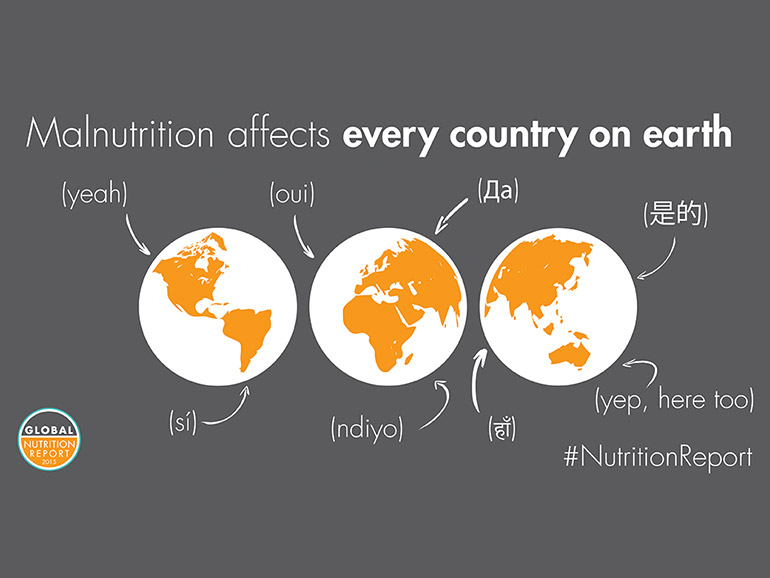The 2015 Global Nutrition Report shows progress is slow, but possible

The 2015 Global Nutrition Report – the only comprehensive report on all forms of malnutrition in all counties – was launched in New York City on September 22nd.
Serving as a report card on the world’s nutrition, the report shows how much progress the world is making on reducing malnutrition, what governments need to do to accelerate progress, and how citizens can hold their leaders responsible to do so.
Key findings:
- Nearly half of all countries face multiple serious burdens of malnutrition such as poor child growth, micronutrient deficiency, and adult overweight and obesity.
- No country is on track to achieve the global nutrition targets established by the World Health Assembly.
- If improvements to nutritional status are to be accelerated, countries must invest more than the estimated 5% or less than is currently being spent from national budgets on nutrition and must focus on high-impact interventions.

While the 2015 Global Nutrition Report makes it clear that progress to reduce malnutrition has been slow and uneven, it also shows that progress is possible. The report highlights the many policy, program and investment opportunities to drive impact, as well as several examples of countries making strides.

The second in an annual series, the 2015 Global Nutrition Report also highlights the relationship between climate change and nutrition, as well as how countries can build food systems that are more nutrition friendly and sustainable.
1,000 Days is proud to be a partner on the Global Nutrition Report and serve as an advisor to the report as part of the Executive Committee. The report, as well as supplemental materials and data, can be downloaded at the Global Nutrition Report website.
